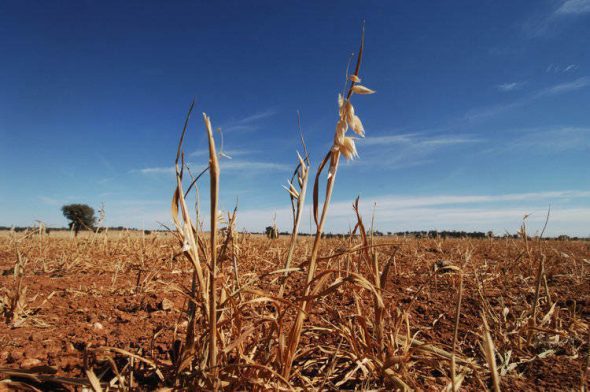A new study analysing a $300 billion group of some of the world’s 60 largest food companies has revealed that a vast majority are deemed “high risk” and are failing to manage critical 21st-Century business risks such as greenhouse gas emissions and antibiotics.
The new Coller FAIRR Protein Producer Index is the world’s first comprehensive analysis of how some of the planet’s largest food suppliers are managing critical sustainability risks from pollution to the Paris Climate Agreement, from food safety to worker safety.
The new index is backed by FAIRR, a $5.9 trillion investor network, and analysed 60 global intensive farming companies on health, environmental, and social issues.
It found that 60% of the intensive farming sector – made up of 36 companies worth a total of $152 billion – are categorised as “high risk” by the new index aimed at informing large investors.
Of the 60 companies surveyed, three were based in Australia – Tassal Group, Inghams Group, and Australian Agricultural Co (AAC) – and it was not good news for Australia’s big food suppliers.
Tassal Group faired the best, but was still classified as a “Medium Risk” company with a final score of only 52 (as compared to Marine Harvest from Norway, which scored the highest with 82), while Ingham and AAC were both deemed “high risk” with scores of 25 and 10 respectively.
“This $300 billion group of major food suppliers may well be the next big risk for investors,” explained Jeremy Coller, CIO of Coller Capital and Founder of FAIRR.
“From superbugs to safety, the growing impact of health and environmental factors is leaving many intensive farming companies past their sell by date.
This comprehensive new index brings those risks into sharp focus for investors.”
“As megatrends like technology, climate and antibiotic resistance radically reshape the way we produce and consume meat and fish, the FAIRR index will help institutional capital more easily identify both best in class companies and potential stranded assets in the food sector.”
The 36 companies identified in the index as being “high risk” were classified as such across all sustainability factors – Greenhouse gas emissions; Deforestation and biodiversity loss; Water scarcity and use; Waste and pollution; Antibiotics; Animal welfare; Working conditions; and Food safety.
It included the likes of Cal-Maine Foods (US), Guangdong Wens (China), and suppliers to large fast food chains such as Venky’s (India) and Fujian Sunner (China) – the latter two which supply to McDonalds and KFC.
Sanderson Farms, the third largest poultry producer in the US, was also given a bottom-tier ranking.
Beyond the value risk of investing in these companies, they are also endangering the Paris Climate Agreement.
Specifically, the livestock sector is worth approximately 14.5% of all greenhouse gas emissions – approximately that of the entire greenhouse gas emissions of the United States, one of the world’s leading emitters.
However, according to the FAIRR index study, 72% of the sector, worth around $175 billion, is failing to manage its climate risk and showed that no major livestock company uses an internal price on carbon.
Specifically, the report identified Chinese companies as scoring particularly poorly on sustainability metrics, with 14 out of 16 Chinese-based firms assessed categorised as “high risk”.
Global food companies are also not doing enough to adequately manage or disclose antibiotic use – around 77% of those surveyed in the study, worth $239 billion – despite the fact that there are growing levels of regulation and international action to combat antibiotic resistant superbugs.
In fact, 22% of firms surveyed failed to show full traceability of their food supply chain – a worrying sign.
Further, only 5 of the 60 companies assessed accounted for the emergence and growth of the ‘alternative proteins’ sector – a rapidly growing sector that is expected to be worth $5.2 billion by 2020.
“From fast food to fine dining, much of the food on our plates leads back to the livestock and fisheries sector assessed by this Index,” said Abigail Herron, Global Head of Responsible Investment, Aviva Investors, one of the investors represented by FAIRR.
“That is why it is of deep concern to investors that a majority of these global food suppliers are failing to manage such significant business risks.
On antibiotics alone, FAIRR’s research shows that three in four of these companies are ignoring the calls from regulators, health professionals and the financial community to manage and reduce their use of antibiotics. That failure puts both global public health and their business models at risk.”








